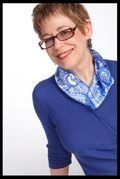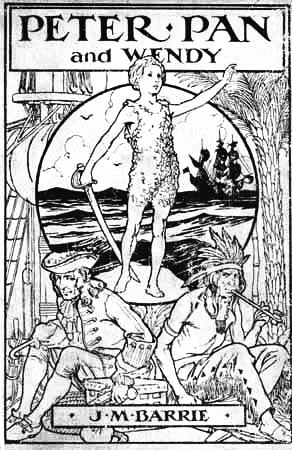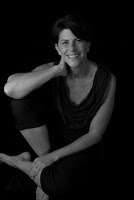Jennifer Lauck's Blog, page 22
October 10, 2011
Take Yourself on the Hero's Journey
 Phase II: Craft Your Memoir
Phase II: Craft Your MemoirThe Hero's Journey: On Reflection
MP3 Download & PDF Handouts
$125.00 value for just $7.50
You will learn:
1. what the hero's journey is and how to put this into your memoir work.
2. how to answer a series of questions that will lead to an essay.
3. what it takes to dive more deeply into your own story.
Download & Go

Published on October 10, 2011 09:53
October 4, 2011
Writing Tip #8: Your Journey Into Memoir Land
 This is a guest post by Linda Joy Myers who is the founder of the National Association of Memoir Writers out of Berkeley. Linda is a therapist and a writing teacher, so she brings a very holistic view of the process. Enjoy her post and share your comments below. I want to hear what you think.
This is a guest post by Linda Joy Myers who is the founder of the National Association of Memoir Writers out of Berkeley. Linda is a therapist and a writing teacher, so she brings a very holistic view of the process. Enjoy her post and share your comments below. I want to hear what you think. When we write a memoir, we embark upon a journey—to the land of memory, to the heart of who we are and were, to the past, to discovery. We honor those we loved, we name things that were never named. The memoir also becomes like an archeological dig. We discover new aspects of ourselves we didn't know. We discover memories, insights, and knowledge—or they seem to discover us!
Writing a memoir is so much more about an exploratory adventure toward self-knowledge than most people imagine it will. At first, we start off excited about our writing, our book, but somewhere along the way—in the middle is where it happens for most people—we find ourselves doubting our memories and our writing, and we find ourselves sinking into a morass of questions and doubts.
Should I be writing this—what will the family say? I didn't realize that I would write about abuse—I didn't plan that but now that's what keeps coming out. I find so many layers of the story, I'm overwhelmed. I want to stop writing—why did I start this anyway, it's harder than I expected. I find myself crying, I want to put aside the feelings that are coming up. After all, didn't I talk about this enough in therapy? I just want to write the happy stuff. Can't I just do that? I decided to leave out the things that the family doesn't want me to write. But if I do, there won't be much left.
While writing is not therapy, nor is the writing group a therapy group, the truth is that writing a memoir is healing and can be therapeutic—the root of therapeutic means "healing." Another word for it is transformation. Another word: change.
Writing a memoir will change you—for the better, but you have to go through the process, you have to write and keep writing deeper and deeper into the layers of your life to find the other side, to discover the gifts that writing a memoir will give you. Your story will teach you, it's a path of knowledge, according to Dr. James Pennebaker, the psychologist who researched the power of writing to heal.
You need to take care of yourself, your soul, your heart, and your body as you continue to write, dig, learn, and return for more.
1. Accept that writing your memoir will take longer to complete than you want it to.
2. You need to stock up supplies for this project: Kleenex, writing pals, support, quiet time, and lots of permission. Oh, and tea. Lots of tea. It has chemicals that calm you down. The English have something there!
3. Allow the writing process to guide you toward the unwanted stories, images, and memories. They will be your teacher. Tune in and listen to them.
4. Be open to the stories that want to come through you. Listen to your body.
5. Alternate "dark" and "light" stories—take care of your emotional balance.
6. Invite your unconscious to help you write and remember. Write before bed, as soon as you wake up. Journal questions you want to dream about.
7. Treat your writing with respect. File it so you can find it. Back up your files. Print out your work and put it in a notebook. Act like a "real" writer!
8. Find a mentor who has been on the journey. After all, Cinderella had the fairy godmother and Frodo had Gandalf.
QUESTION: How is your memoir writing process unfolding?
Don't forget the Oct. 21st
Published on October 04, 2011 12:43
October 3, 2011
Book Talk: Peter Pan by T.S. Barrie
 Sublime Character Development
Sublime Character DevelopmentI was reading this classic to the kids and found that I couldn't put it down. Peter Pan, written by Sir James Mathew Barrie in the 1800's is simply put, a stunning model for character development.
Rather than recap the story of Peter Pan, which so many of us know (and if you don't, for heaven's sake, go get a copy now), I wanted to explore the background of the writer in order to understand his brilliance (and secrets) when it came to character development.
Barrie was the son of a motherless daughter. His mother, Margaret, lost her own mother when she was eight years old. Margaret became fully responsible for her household at that time.
Barrie was born in Scotland and was the ninth child of ten. When he was six years old, his older brother died in an ice skating accident. The death was devastating to Margaret Barrie and to help compensate for her grief (and because he was the one home with her), Barrie would sometimes wear his dead brothers clothing. Eventually Barrie and his mother entertained each other with stories from her childhood and the sharing of adventure books like Robinson Caruso. Barrie learned to be a vivid storyteller—as a way to offer consolation to his mother. His mother took comfort in the fact that her dead son would remain a boy forever and this was the birth of the character of Peter Pan.
Educated at the University of Edinburgh, Barrie wrote drama reviews for a newspaper. Eventually he turned to the theatre and wrote plays.
When Barrie wrote Peter Pan, it was a stage production and therein lays the "ah-ha" for me. The character development on the pages is so deep and complete, it boggles the mind but when I consider how much an actors character much be created in advance in order for actors to fully enter the role—I understand.
But let me go a step past the obvious to see what, specifically, makes his character development so marvelous. (After all, many playwrights didn't take this kind of time delving deeply into characters, right?) For me, Barrie's brilliance is in the way he places each person on the page as a personality verses a physical being. Barrie goes beyond hair color and height and into persona—the essence of a person—dare I say "soul." Barrie gives his characters spectrum.
Mrs. Darling is written about thus: "She was a lovely lady, with a romantic mind and such a sweet mocking mouth. Her romantic mind was like the tiny boxes, one with the other, that comes from the puzzling East, however many you discover there is always one more; and her sweet mocking mouth had one kiss on it that Wendy could never get, thought there is was, perfectly conspicuous in the right-hand corner."
Mr. Darling: "Mr. Darling used to boast to Wendy that her mother not only loved him but respected him. He was one of those deep ones who know about stocks and shares. Of course no one really knows, but he quite seemed to know, and he often said stocks were up and shares were down in a way that would have made women respect him."
The two of them described: "Mrs. Darling loved to have everything just so, and Mr. Darling has a passion for being exactly like his neighbors; so of course, they have a nurse."
Peter Pan: "It is humiliating to have to confess that this conceit of Peter's was one of his most fascinating qualities. To put it with brutal frankness, there was never a cockier boy."
And one more. Hook! "In the midst of them, the blackest and largest jewel in that dark setting, reclined James Cook…In person he was cadaverous and blackavized, and his hair was dressed in long curls, which at a little distance looked like black candles, and gave a singularly threatening expression to his handsome countenance."
I'm sorry to write so many examples but the character sketches are simply enthralling. Consider that the book is only 143 pages long—wow. Barrie keeps describing his characters all the way to his ending—so the reader continues to have the depth of each person's being-ness throughout.
[image error] Why did I spend so much time looking at Barrie's beginnings? Well, as I look at his work critically, I felt his childhood was crucial. I don't want to analyze him but rather wanted to get at the depths of what makes him such a fine storyteller and character creator. He lived a soulful life—in a soulful connection to his mother as healer (or attempted healer) of her deep grief over the death of her son (his brother) which likely triggered her early pain from the death of her own mother and thus the death of her own childhood. It's the old adage: great depth comes from great heartbreak or what doesn't kill you makes you…a better storyteller.
Barrie pays attention to personality and even soul and to me, that is the basis of great story telling.
Published on October 03, 2011 09:00
September 27, 2011
Writing Tip #7: Keep Your Words Simple
 Simplicity isn't just for Zen Buddhist Monk or for nature. Simple language actually makes you more believable. Back when I was a TV reporter, we were taught to write to a sixth grade mind--not because viewers lack intelligence but because people who feel "left out" of a conversation will turn the channel. Nothing alienates faster than a lot of high falutin' fancy talk!
Simplicity isn't just for Zen Buddhist Monk or for nature. Simple language actually makes you more believable. Back when I was a TV reporter, we were taught to write to a sixth grade mind--not because viewers lack intelligence but because people who feel "left out" of a conversation will turn the channel. Nothing alienates faster than a lot of high falutin' fancy talk! This article, from the web, is one of my class handouts because I love the information and totally agree. I've highlighted some of the text to help you get the point. Read on!
Speak and write using unambiguous language and people will believe you.
I've just deleted a rather abstract introduction I wrote to this article about truth. The reason? I noticed I wasn't taking the excellent advice offered in a recent article published in Personality and Social Psychology Bulletin. That advice is simple: if you want people to believe you, speak and write concrete.
There are all sorts of ways language can communicate truth. Here are some solid facts for you:
1) People usually judge that more details mean someone is telling us the truth,
2) We find stories that are more vivid to be more true,
3) More raw facts make unlikely events more likely.
But all these involve adding extra details or color. What if we don't have any more details? What if we want to bump up the believability without adding to the fact-count?
Just going more concrete can be enough according to a recent study by Hansen and Wanke (2010).
Compare these two sentences:
Hamburg is the European record holder concerning the number of bridges.
In Hamburg, one can count the highest number of bridges in Europe.
Although these two sentences seem to have exactly the same meaning, people rate the second as more true than the first. It's not because there's more detail in the second—there isn't. It's because it doesn't beat around the bush, it conjures a simple, unambiguous and compelling image: you counting bridges.
Abstract words are handy for talking conceptually but they leave a lot of wiggle-room. Concrete words refer to something in the real world and they refer to it precisely. Vanilla ice-cream is specific while dessert could refer to anything sweet eaten after a main meal.
Verbs as well as nouns can be more or less abstract. Verbs like 'count' and 'write' are solid, concrete and unambiguous, while verbs like 'help' and 'insult' are open to some interpretation. Right at the far abstract end of the spectrum are verbs like 'love' and 'hate'; they leave a lot of room for interpretation.
Even a verb's tense can affect its perceived concreteness. The passive tense is usually thought more abstract, because it doesn't refer to the actor by name. Perhaps that's partly why fledgling writers are often told to write in the active tense: to the reader it will seem more true.
Hansen and Wanke give three reasons why concreteness suggests truth:
Our minds process concrete statements more quickly, and we automatically associate quick and easy with true (check out these studies on the power of simplicity). We can create mental pictures of concrete statements more easily. When something is easier to picture, it's easier to recall, so seems more true. Also, when something is more easily pictured it seems more plausible, so it's more readily believed.
So, speak and write solidly and unambiguously and people will think it's more true. I can't say it any clearer than that.
From: PSYBlog
Published on September 27, 2011 14:46
September 17, 2011
Craft Class Series: Oct.
 Become a better writer now. In this four hour class, Jennifer will provide you with practical and effective teachings on:
Become a better writer now. In this four hour class, Jennifer will provide you with practical and effective teachings on: Writing clear, vivid, action packed sentances.
Why point of view matters.
The basic composition of a scene.
Don't miss this opportunity to grow as a writer
WHEN: Sunday, Oct. 16th - 1 - 5 p.m. PST
VIA: Conference Call & Free Screen Sharing
COST: $75.00

The first ten writers to sign up will be invited to submit writing to Jennifer and your work will be part of the class! Don't wait.
Published on September 17, 2011 16:19
September 3, 2011
A Zero-Circle by Rumi
 Be helpless and dumbfounded,
Be helpless and dumbfounded,unable to say yes or no.
Then a stretcher will come
from grace to gather us up.
We are too dulleyed to see the beauty.
If we say "Yes we can," we'll be lying.
If we say "No, we don't see it,"
that "No" will behead us
and shut tight our window into spirit.
So let us not be sure of anything,
besides ourselves, and only that, so
miraculous beings come running to help.
Crazed, lying in a zero-circle, mute,
we will be saying finally,
with tremendous eloquence, "Lead us."
When we¹ve totally surrendered to that beauty,
we'll become a mighty kindness.
- Jellaludin Rumi
( Mathnawi IV, 3748-3754
translated by Coleman Barks)
Published on September 03, 2011 12:28
August 30, 2011
Fall Classes
 Memoir is the hottest genre in publishing today. Why? People love to read life stories--especially life stories that are thoughtful and well rendered.
Memoir is the hottest genre in publishing today. Why? People love to read life stories--especially life stories that are thoughtful and well rendered.The Master Class Series inspires you to create writing that is both. In Portland, we meet Monday nights, beginning Sept. 12 & ending on Nov. 14, from 5:30 - 9:00.
The Master Class is devoted to the development of skill in the area of scene, point of view, arc, plot, dialogue, setting and detail infusion. You will also learn about the skillful navigation of reflective writing and how to explore memory without being confined or limited. While this is a class geared toward the memoir writer, fiction writers are welcome too.
How Does Class Work?
Six readers will be pre-selected based on interviews and past class experience. These readers will have their writing (20-25 pages in length) work-shopped twice during the course of the term. This portion of the Master Class--which will be the second 90 minutes--is a teaching for the entire class. We learn from each other in this class. Experience is the best teacher. When you see a skilled writer have work examined, with close attention paid to structure, composition and scene, you will learn more than you can imagine.
The first 90 minutes of each class will be dedicated to straight forward teaching on craft and I will make use of prompts so that you will be writing--in class--and at home.
Anyone who takes a class from me is expected to be writing and to take writing seriously. I'll be giving you my best and only accept those with the same rigorous standards.
Cost: $350.00 for the non-reader (space available, advance conversation required)
$500.00 for the work shopped student (three spots available and you must be pre-approved before taking a spot).
NOTE: It is rare for me to accept a reader--who has not attended class, or a workshop--but it happens. If you feel you have writing that might be considered--let me know and we'll talk.
Published on August 30, 2011 23:56
August 24, 2011
It's Still Not Too Late to Join!
Come to Manzanita, Oregon, Aug, 26, 27 & 28 for a memoir workshop experience that will blow your writing life wide open.
You will get $1600 worth of personalized teachings with NY Times Bestseller Jennifer Lauck to include a thirty page instructional workbook and an audio of the teaching via a digital download.
You will also receive the materials you need for your download exercise which includes your developed time-line and a customized binder to hold your first drafts, your frame statement and your sorting tools.
With The Hoffman Center as host and my co-teacher Anne Gudger at my side, you will be fully immersed in a fabulous weekend of instruction and inspiration.
Understand what you are doing and why.Learn what it means to "compress" time in memoir for a solid arc.Learn how to frame a memoir so it is more compelling.Learn how to craft your memoir to be full of vivid imagery. Learn how to finish a full length manuscript in less than three months.
All that and more will happen in this fun, relaxing, exciting and energizing intensive.
Only $470.00

Checks can be sent to: Jennifer Lauck 2535 E. Burnside, Suite 102, Portland, OR 97214
MORE DETAILS: Write to me at Jennifer@jenniferlauck.com. One Space Left
Addl Accommodation Options:
Sunset Surf
Spindrift
Ocean Inn
Inn at Manzanita
Coast Cabins
Sunset Vacation Rentals
Published on August 24, 2011 08:53
August 20, 2011
One Space Left!
Come to Manzanita, Oregon, Aug, 26, 27 & 28 for a memoir workshop experience that will blow your writing life wide open.
You will get $1600 worth of personalized teachings with NY Times Bestseller Jennifer Lauck to include a thirty page instructional workbook and an audio of the teaching via a digital download.
You will also receive the materials you need for your download exercise which includes your developed time-line and a customized binder to hold your first drafts, your frame statement and your sorting tools.
With The Hoffman Center as host and my co-teacher Anne Gudger at my side, you will be fully immersed in a fabulous weekend of instruction and inspiration.
Understand what you are doing and why.Learn what it means to "compress" time in memoir for a solid arc.Learn how to frame a memoir so it is more compelling.Learn how to craft your memoir to be full of vivid imagery. Learn how to finish a full length manuscript in less than three months.
All that and more will happen in this fun, relaxing, exciting and energizing intensive.
Only $470.00

Checks can be sent to: Jennifer Lauck 2535 E. Burnside, Suite 102, Portland, OR 97214
MORE DETAILS: Write to me at Jennifer@jenniferlauck.com. One Space Left
Addl Accommodation Options:
Sunset Surf
Spindrift
Ocean Inn
Inn at Manzanita
Coast Cabins
Sunset Vacation Rentals
Published on August 20, 2011 08:53
August 5, 2011
Write that Memoir Now!
Come to Manzanita, Oregon, Aug, 26, 27 & 28 for a memoir workshop experience that will blow your writing life wide open.
You will get $1600 worth of personalized teachings with NY Times Bestseller Jennifer Lauck to include a thirty page instructional workbook and an audio of the teaching via a digital download.
You will also receive the materials you need for your download exercise which includes your developed time-line and a customized binder to hold your first drafts, your frame statement and your sorting tools.
With The Hoffman Center as host and my co-teacher Anne Gudger at my side, you will be fully immersed in a fabulous weekend of instruction and inspiration.
Understand what you are doing and why.Learn what it means to "compress" time in memoir for a solid arc.Learn how to frame a memoir so it is more compelling.Learn how to craft your memoir to be full of vivid imagery. Learn how to finish a full length manuscript in less than three months.
All that and more will happen in this fun, relaxing, exciting and energizing intensive.
Only $470.00

Checks can be sent to: Jennifer Lauck 2535 E. Burnside, Suite 102, Portland, OR 97214
MORE DETAILS: Write to me at Jennifer@jenniferlauck.com. 2 semi private accommodations are left at no additional cost. Two private rooms available, $50 a night too!
Addl Accommodation Options:
Sunset Surf
Spindrift
Ocean Inn
Inn at Manzanita
Coast Cabins
Sunset Vacation Rentals
Published on August 05, 2011 08:53



